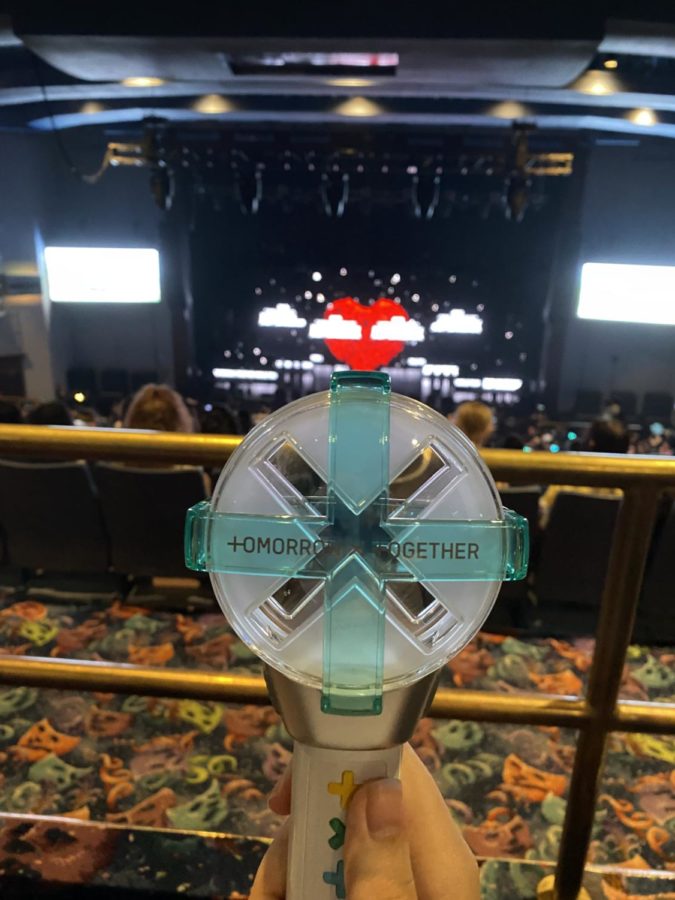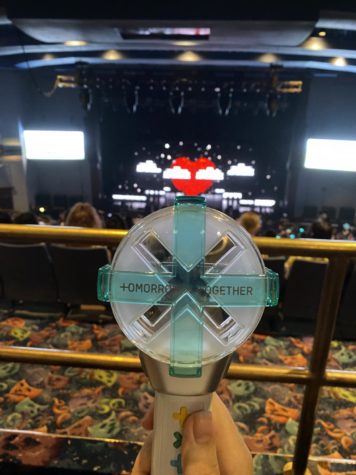An Analysis of K-Pop
The Boy Bands of Today
TXT Concert
January 25, 2023
In the beginning, a band
In the mid 60s a British band formed, calling themselves “The Beatles.” They rapidly became famous world wide, sparking a new generation of bands that have collectively been called “Boy Bands.” These groups had primarily male members, each with their own distinct personalities that the public became hooked on. With time, the fan bases of these bands became more passionate than ever, almost becoming cult-like with their love for the band members.
In the current era, the newest generation of boy bands have sprung up. Known collectively as K-Pop groups, they have stormed over the world, inundating people with their eccentric personalities and talented artists.
Music in My Head
My preference in music has always leaned heavily towards songs that contain more “razzmatazz” than average. This led me to be hesitant to listen to K-Pop as it never seemed to have the right rhythm that I preferred in the music I listened to. With the belief that it was a genre focused primarily on pop music based on its name, I hadn’t felt any pull towards the bands that were looped in with the title of K-Pop. “I don’t like pop that much,” I’d say when asked why I wouldn’t try listening to it.
But when talking to Mallory, a friend who has been listening to K-Pop since 2019, about the subject, she explained that “[K-Pop’s] not really a genre [itself] because songs from an artist’s discography can sound completely different to songs from the same album.” She went on to explain that K-Pop is a composition of many different themes and ideas all dialed into one general concept, with the “Pop” part of K-Pop being a remnant from when it became popular and was primarily pop songs. Even the band’s members aren’t set in stone for the roles that they can play or who will be the lead for their group.
All Stars
It’s not all glitter and gold however. Members of the group “Omega X” have come out with abuse allegations against their producers. The abuse had been actively seen by fans at concerts, hotels, and airports. This is just one example of abuse that k-pop artists have experienced. The group “NewKidd” has also suffered from abuse at the hands of their producers. They had been supposedly overworked and verbally abused, just like Omega X. Various reports have also been made about companies “preying” on new trainees. According to Sophia Ling, a writer for the newspaper The Emory Wheel, “Revenue is split disproportionately between managing companies and their stars.” The split is usually around 90/10, with the 10% being split among the members of the group. The abuse runs even deeper, with companies even encouraging eating disorders and glamorizing the harsh treatment.
Cross X Cross
The relationship between fan and artist is an odd one in K-Pop. Fans can become incredibly toxic, going as far as to harass people for disliking their favorite artists. On the other hand, the artists endure extensive abuse at the hands of producers and deal with obsessed fans. Some of those fans will even go as far as harassing the family of the artists. An example of this is when multiple fans targeted the family of the artist Jisoo from Blackpink, claiming they were haters as one of the members left early.
Conclusion
At the end of the day, I’m still not a fan of K-Pop. After listening to a small sample of songs, including “Runaway” by TXT, “Fearless” by Les Serafirm, and “God’s Menu” by Stray Kids, I’ve realized the genre isn’t for me. The music is well produced and sounds great, but doesn’t have the rhythm that I look for in music. Along with the toxic community and rampant abuse, I don’t enjoy the lack of cohesion in an artist’s discography. I’d give the whole genre a 5/10, with an extra point added because the whole idea of K-Pop has inspired and helped many people express themselves.







































































